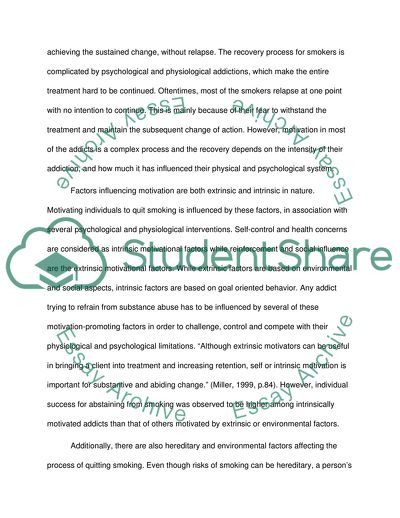Cite this document
(Quitting Smoking Essay Example | Topics and Well Written Essays - 1250 words, n.d.)
Quitting Smoking Essay Example | Topics and Well Written Essays - 1250 words. https://studentshare.org/psychology/1850207-motivation-and-the-brain-paper-quitting-smoking
Quitting Smoking Essay Example | Topics and Well Written Essays - 1250 words. https://studentshare.org/psychology/1850207-motivation-and-the-brain-paper-quitting-smoking
(Quitting Smoking Essay Example | Topics and Well Written Essays - 1250 Words)
Quitting Smoking Essay Example | Topics and Well Written Essays - 1250 Words. https://studentshare.org/psychology/1850207-motivation-and-the-brain-paper-quitting-smoking.
Quitting Smoking Essay Example | Topics and Well Written Essays - 1250 Words. https://studentshare.org/psychology/1850207-motivation-and-the-brain-paper-quitting-smoking.
“Quitting Smoking Essay Example | Topics and Well Written Essays - 1250 Words”. https://studentshare.org/psychology/1850207-motivation-and-the-brain-paper-quitting-smoking.


